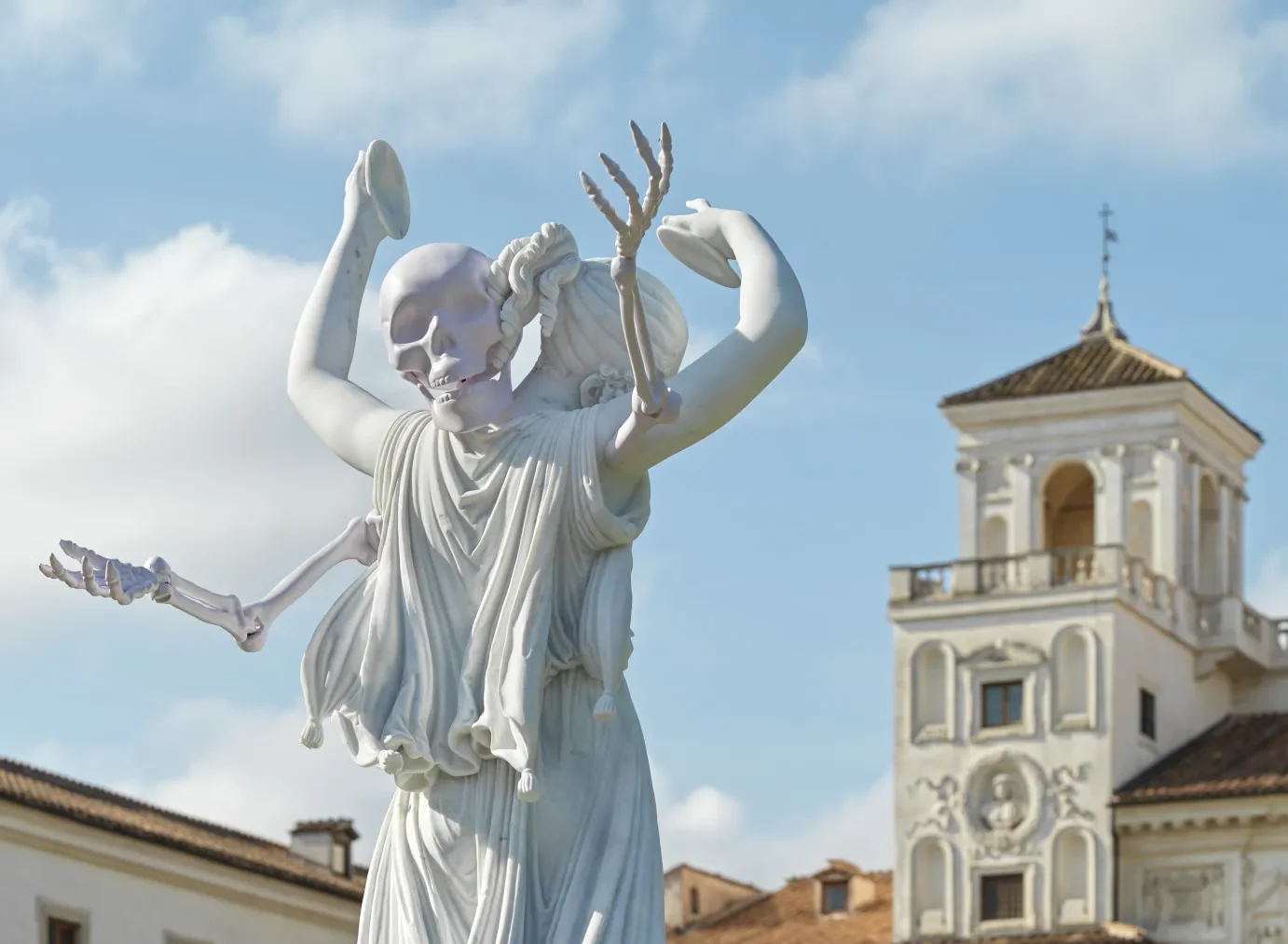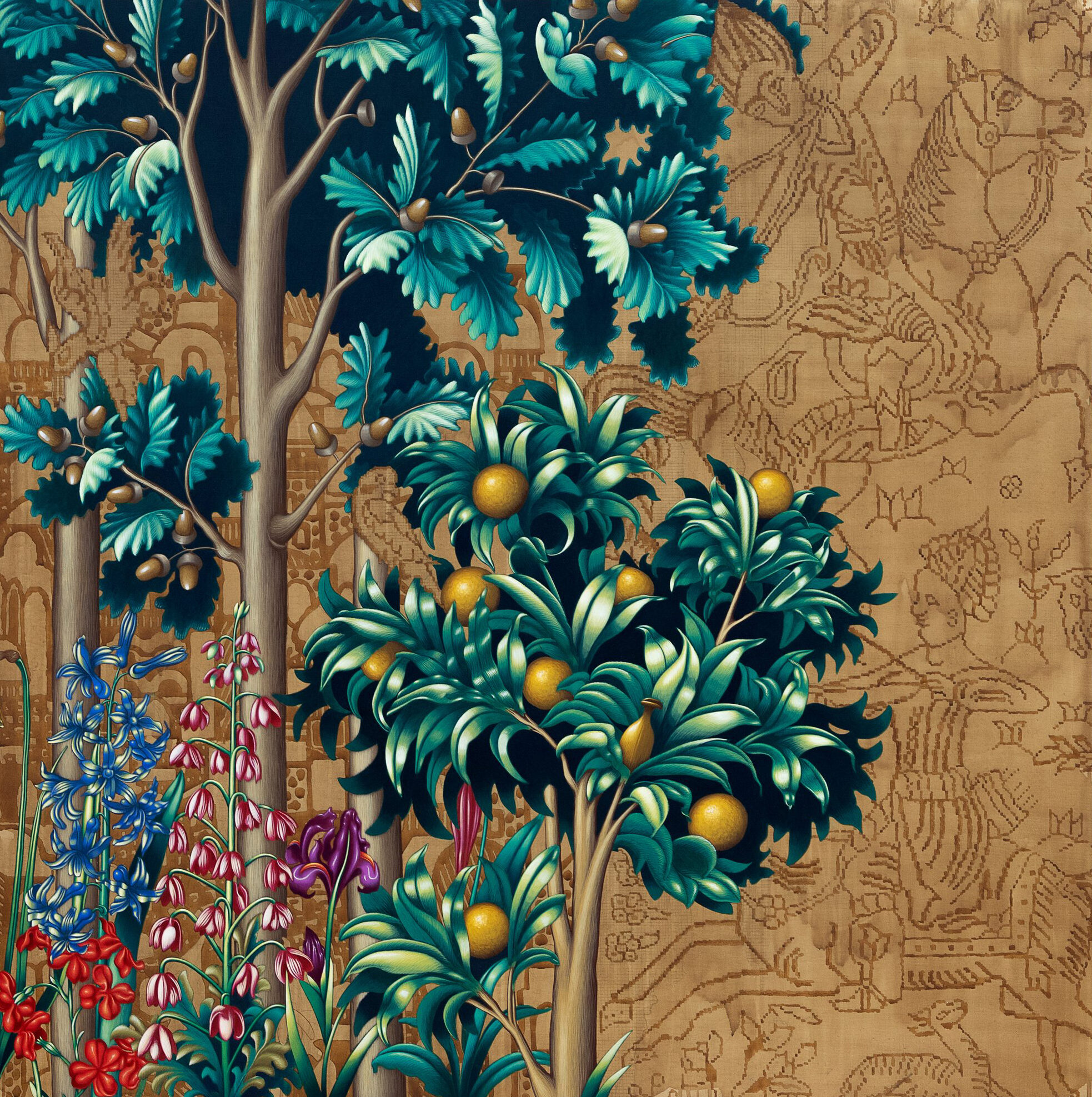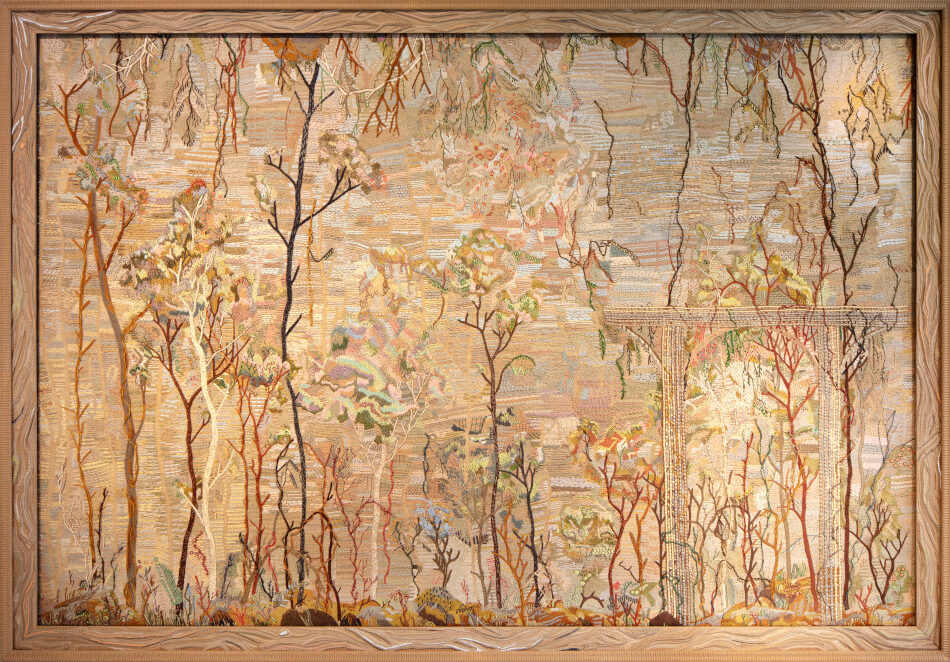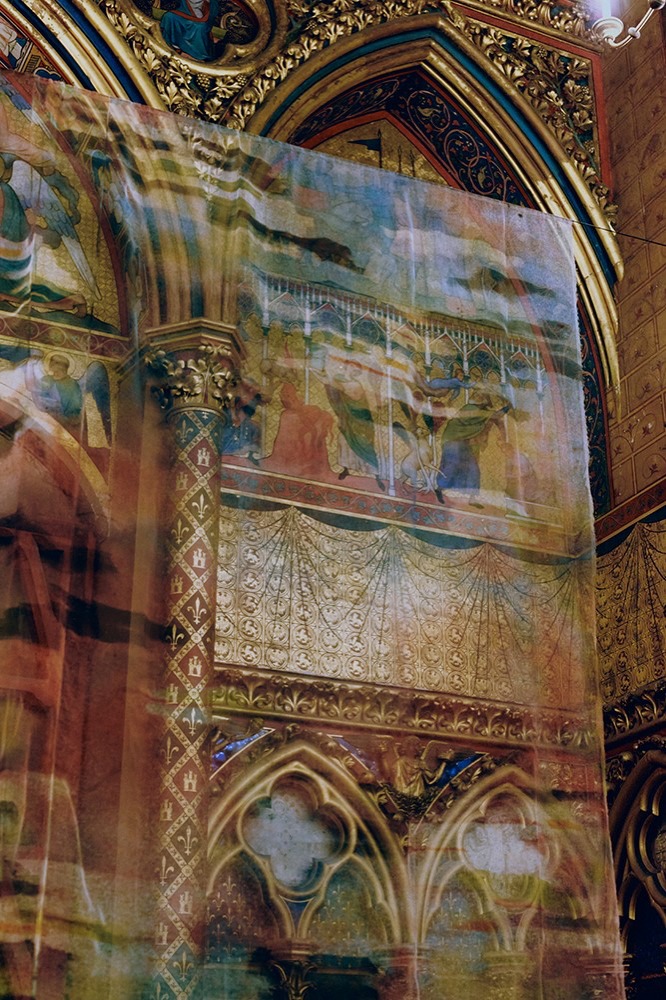Search
Giving substance to the saints
24.01.2025
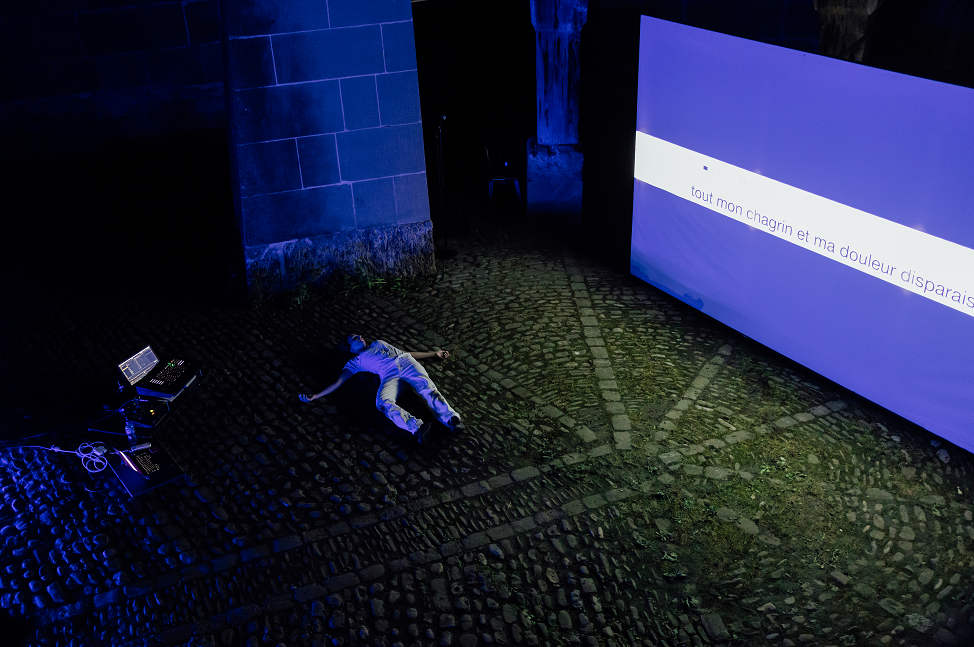
Embodying sanctity
The lives of saints have been performed on stage since the Middle Ages. The staging of Christian myths found a flamboyant form in the Passions and the great hagiographic mysteries performed on a regular basis in the 15th and 16th centuries to protect cities and give a sensitive view of these exceptional lives, which were often far removed from everyday religious practices. These performances played a major part in the creation of the stories of the lives of the saints, which were rewritten for each theatrical event.
In Submission Submission, Bryana Fritz plays the role of an « amateur hagiographer ». The hagiographer, as in the medieval literary genre of hagiography, is the writing of the lives of saints. In a series of performative portraits, she embodies the strategies used by medieval saints to subvert their lives, deaths, and passions, which were confined and restricted. By submitting her physical and digital body to the sacred echoes of the past, she dissects and exploits the tools that give body.
The discussion following Bryana Fritz’s performance will weave threads around several questions at the heart of Marie Bouhaïk-Gironès’ work, focusing on the rhythm and temporality of the hagiographical narrative on stage, how to embody a saintly role, and how this embodiment can affect the body, psyche, and life of the actor, but also on how theater and performance participate in a collective narration of saints that are always in motion and in development. Clovis Maillet (2024-2025 fellow) has worked on the blurring of gender norms that occur in the lives of saints, while in theater, these exceptional beings are often embodied indiscriminately by people socialized as men or as women. How does this make our understanding of the historicity of gender binarity more complex?
Clovis Maillet
Clovis Maillet, fellow 2024-2025 (1981, France), is a historian and artist. He has published La parenté hagiographique XIII-XVe s. (2014) and Les genres fluides (2020). He has edited several issues of academic journals while conducting research on the use of history in contemporary art (Witch TV, 2021; Un Moyen Âge émancipateur, with Thomas Golsenne, 2021). Clovis Maillet co-wrote the performance Medieval Crack with the collective Foulles. Clovis Maillet has also produced performances, installations, and films with Louise Hervé.Bryana Fritz
Bryana Fritz is a choreographer and dancer based in Marseille. She works at the intersection of poetry and performance, often engaging in dialogue with the OS X user interface. Her work draws from a continuous interest in medieval literature, fanfiction, media studies, and stories of illiteracy. She also collaborates with Henry Andersen under the name Slow Reading Club.Marie Bouhaïk-Gironès
Marie Bouhaïk-Gironès is a historian and director of research at the CNRS (Centre de Recherches Historiques, EHESS). A specialist in fifteenth- and sixteenth-century theatrical practices, she works on the social and technical history of performances, the function of theatre and performance from a long-term historical perspective, and the history of the actor, acting and rhetoric. She also works as an artistic collaborator and dramaturge with actors and directors, and teaches at drama schools.
She recently published a book on a hagiographic mystery: Le mystère de Romans. 1509, une cité en spectacle, Paris, Ed. EHESS, 2023; and also ‘The Performing Arts in Fifteenth and Sixteenth Century France: The Making of Theatre’ (with Estelle Doudet), in A New History of Theatre in France, dir. Clare Finburgh Delijani and Christian Biet, Cambridge, CUP, 2024; on the question of acting and actors: ‘Comment faire l’histoire de l’acteur au Moyen Âge?’, Médiévales, 59 (autumn 2010).
Credits
Performance, text and choreography: Bryana Fritz
Dramaturgy: Tom Engels
Artistic and technical support: Alice Panziera
Set design and sculptural objects: Iris Marchand
Production: Elissa Kollyris
Music: music inspired by Like a Prayer by Madonna, Monsters by Heavens to Betsy, Hamster Baby by Bikini Kill, Is It Dark? by Liza ‘N’ Eliaz, Christina the Astonishing by Nick Cave, Agnus Dei by the Hilliard Ensemble, Generation by Liturgy, and Che ti nova Nasconder, Senti Tu D’amor, Aquila Altera, Alta Serena Luce, O Crudel Donna by Ensemble Syntagma.
With the support of : Performatik19, Beursschouwburg, Kunstencentrum Vooruit, LOD muziektheater, La Briqueterie CDCN, Pavillon ADC and Centre Chorégraphique National d’Orléans.
Practical information
Friday 24 January from 6.00 pm to 8.00 pm
Grand Salon of Villa Medici
Free : reservations required
Language : French
